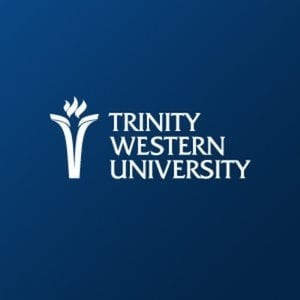Description:
The Christianity and Culture program at Trinity Western University offers students a comprehensive exploration of the historical, philosophical, and cultural dimensions of Christianity and its influence on Western and global societies. This interdisciplinary major is designed to deepen students' understanding of Christian theology, biblical studies, and the role of faith in shaping cultural ideas, art, literature, ethics, and social structures throughout history and in contemporary contexts. Through a blend of rigorous academic coursework and meaningful engagement with faith-based perspectives, students are encouraged to critically analyze the relationship between Christianity and various aspects of culture, fostering both intellectual growth and spiritual development. The curriculum encompasses a wide range of subjects including biblical studies, church history, theology, ethics, philosophy, intercultural studies, and the arts. Students have the opportunity to examine how Christian principles influence areas such as social justice, education, politics, and community service. The program aims to equip graduates with the analytical skills, theological understanding, and cultural awareness necessary to contribute thoughtfully and effectively in leadership roles within church, nonprofit, educational, and cultural institutions. Emphasizing both academic excellence and faith integration, Trinity Western University’s Christianity and Culture program prepares students to engage with contemporary societal issues from a grounded biblical perspective, encouraging responsible citizenship and meaningful faith practice. The program also offers various electives and experiential learning opportunities such as internships, study abroad programs, and community projects, fostering practical skills and real-world understanding. Graduates of the program are well-positioned for careers in pastoral ministry, Christian education, non-profit work, arts and media, counseling, and other fields where faith and cultural engagement intersect. Overall, the Christianity and Culture program at Trinity Western University is committed to developing graduates who are intellectually vibrant, spiritually grounded, and culturally savvy, capable of making positive contributions within their communities and beyond.
The Christianity and Culture program at Trinity Western University offers students a comprehensive exploration of the Christian faith and its profound influence on various aspects of society, history, and culture. This interdisciplinary degree aims to cultivate a deep understanding of biblical principles while examining their application within contemporary cultural contexts. Throughout the program, students engage with a diverse curriculum that integrates theology, literature, philosophy, history, art, and social sciences, fostering critical thinking and ethical reflection.
Students will study foundational biblical texts and doctrines, gaining insights into Christian beliefs and practices. The program emphasizes the development of scholarly skills necessary to analyze cultural phenomena through a biblical worldview. Courses cover topics such as Christian theological thought, the history of Christianity, the relationship between faith and reason, and the role of the church in shaping Western civilization. In addition to theological studies, students explore cultural expressions—literature, visual arts, music, and film—to understand how Christianity has influenced and been reflected in various cultural forms.
The program also examines contemporary issues such as social justice, ethics, globalization, and secularism, encouraging students to consider how Christian values can contribute to addressing modern societal challenges. Students are equipped with the tools to critically analyze cultural trends and to articulate a worldview grounded in Christian teachings. The curriculum is designed to foster both academic excellence and spiritual growth, preparing graduates for careers in ministry, education, counseling, journalism, and other fields where faith and culture intersect.
Throughout their studies, students participate in community engagement, chapel services, and internships that provide practical experience and deepen their understanding of living out faith in cultural contexts. The program’s faculty are committed to mentoring students and encouraging intellectual inquiry within a Christian framework. Upon graduation, students will be well-prepared to contribute thoughtfully and ethically to community life, cultural discourse, and various professional fields, making a meaningful impact grounded in biblical truth.
Program Requirements: Christianity and Culture at Trinity Western University
The Bachelor of Arts in Christianity and Culture at Trinity Western University is designed to equip students with a comprehensive understanding of Christian faith and its influence on various cultural contexts. To fulfill the graduation requirements, students must complete a total of 120 credit hours, including core courses, electives, and a capstone project. The core curriculum emphasizes the integration of biblical studies, theology, history, philosophy, and cultural analysis.
Students are required to take foundational courses such as Introduction to Christianity, Biblical Studies, and Christian Theology to establish a solid understanding of Christian doctrines and scriptural interpretation. In addition, courses in church history, ethics, and worldview examine the development of Christian thought and its impact on society throughout history. The program also includes classes focusing on contemporary cultural issues, media, arts, and literature, fostering critical thinking about the role of Christianity in modern culture.
Elective courses offer specialization opportunities in areas such as Cross-Cultural Engagement, Religious Studies, or Media and Cultural Criticism. A significant component of the program is a capstone project, which involves independent research and a written thesis demonstrating the student’s ability to analyze cultural phenomena from a Christian perspective. Language proficiency in biblical Hebrew or Greek is encouraged but not mandatory. Students are also expected to participate in experiential learning opportunities, including internships and community service, to apply their knowledge in real-world settings.
To maintain good academic standing, students must achieve a minimum grade point average of 2.0 in all coursework. The program aims to prepare graduates for careers in ministry, education, media, social services, and other fields where cultural engagement and Christian worldview are essential. Faculty members are committed to providing a rigorous academic environment grounded in biblical truth and scholarly excellence, ensuring students are well-equipped for professional and personal growth.
Want to improve your English level for admission?
Prepare for the program requirements with English Online by the British Council.
- ✔️ Flexible study schedule
- ✔️ Experienced teachers
- ✔️ Certificate upon completion
📘 Recommended for students with an IELTS level of 6.0 or below.
The Christianity and Culture program at Trinity Western University offers a comprehensive approach to understanding the relationship between Christian beliefs and cultural developments throughout history. Regarding financing studies for this program, students typically have multiple options to support their education financially. Trinity Western University provides various scholarships and bursaries based on academic achievement, leadership qualities, and financial need. Prospective students are encouraged to apply early for merit-based awards, which can significantly offset tuition costs. Additionally, the university offers specific scholarships for students demonstrating exceptional commitment to Christian service and community engagement, aligning with the values of the Christianity and Culture program.
Apart from scholarships, many students utilize government financial aid programs, which may include student loans and grants, depending on their residency status and eligibility. The university also participates in various government-funded aid schemes, and students are advised to complete the Free Application for Federal Student Aid (FAFSA) if qualifying as a U.S. student, or provincial aid applications within Canada. Trinity Western University’s flexible payment plans allow students to spread the cost of tuition across multiple installments, making higher education more accessible. Part-time employment opportunities on campus are available, providing students with additional income sources to cover expenses related to tuition, textbooks, and living costs.
International students interested in studying Christianity and Culture can explore supplemental financial support options, including external scholarships offered by Christian organizations and church communities. It is recommended for prospective students to consult the university’s Financial Services office, which provides personalized guidance on available funding options, application procedures, and deadlines. Overall, Trinity Western University endeavors to make studying Christianity and Culture financially feasible through a combination of institutional aid, external scholarships, government support, and flexible payment arrangements.
The Bachelor of Arts in Christianity and Culture at Trinity Western University offers students an in-depth exploration of the historical, cultural, and theological foundations of Christianity and its influence on Western civilization and global cultures. This interdisciplinary program emphasizes the development of critical thinking, analytical skills, and moral reasoning through a curriculum that integrates biblical studies, history, philosophy, literature, and cultural studies. Students engage with the Bible as the foundation of Christian faith, examining its historical context, literary features, and theological themes. The program also explores the role of Christianity in shaping societal values, art, music, law, and politics, fostering an understanding of how faith interacts with cultural developments across different epochs.
Throughout their studies, students are encouraged to reflect on their own beliefs and to consider how Christian doctrines influence contemporary ethical issues and cultural practices. The program includes coursework that addresses the relationship between Christianity and other world religions, promoting tolerance and intercultural understanding. Critical analysis of texts, engagement with primary sources, and participation in discussions are integral components of the curriculum, equipping students to analyze complex cultural issues from a biblical perspective.
The program aims to prepare graduates for numerous career paths, including teaching, ministry, public service, non-profit work, or further graduate study in theology, history, or cultural studies. Emphasis is also placed on developing communication skills, leadership qualities, and ethical decision-making, all rooted in a Christian worldview. Students benefit from small class sizes, dedicated faculty with expertise in biblical studies, cultural analysis, and theology, and vibrant campus community activities that promote faith formation and cultural engagement.
In addition to traditional classroom instruction, students have opportunities for internships, service projects, and conferences that foster practical experience and professional development. The program underscores the importance of integrating faith with academic pursuits, encouraging students to become thoughtful, compassionate, and culturally aware individuals who positively impact society through their Christian beliefs and cultural literacy. Graduates from the Christianity and Culture program at Trinity Western University are well-equipped to contribute meaningfully to church communities, educational institutions, cultural organizations, and beyond, embodying a comprehensive understanding of Christianity’s role within human history and contemporary society.



